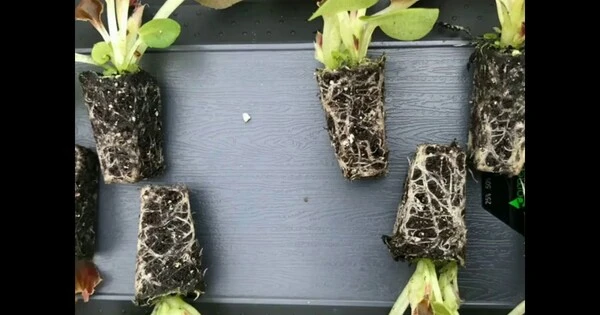Microbial inoculants are formulations that contain beneficial microorganisms such as bacteria, fungi, or other microbes that are applied to soil, plants, or other settings to improve a variety of biological functions. These agricultural additions, also known as soil inoculants or bioinoculants, boost plant health by introducing beneficial rhizosphericic or endophytic bacteria. Many of the bacteria involved create symbiotic relationships with the target crops, resulting in mutual benefits.
These bacteria have critical functions in encouraging plant growth, increasing soil fertility, and reducing diseases. Microbial inoculants are used to increase plant nutrition, but they can also promote plant growth by boosting hormone production. Although bacterial and fungal inoculants are widely used, archaeal inoculation to stimulate plant development is receiving more attention.
There are different types of microbial inoculants, each serving specific purposes:
- Rhizobia Inoculants: These contain nitrogen-fixing bacteria, such as Rhizobium spp., which form symbiotic relationships with leguminous plants. The bacteria colonize the root nodules of the plants, converting atmospheric nitrogen into a form that the plants can use, thereby enhancing nitrogen availability for the plants.
- Mycorrhizal Inoculants: Mycorrhizal fungi form mutually beneficial relationships with plant roots. They increase the surface area for nutrient and water absorption, improve nutrient uptake efficiency, and enhance plant resistance to certain stresses. There are different types of mycorrhizal fungi, including arbuscular mycorrhizae (AM) and ectomycorrhizae (ECM), and inoculants may contain specific strains based on the host plant.
- Plant Growth-Promoting Rhizobacteria (PGPR) Inoculants: These inoculants contain bacteria that have beneficial effects on plant growth. PGPR can enhance nutrient availability, produce plant growth hormones, and protect plants from pathogens. Examples of PGPR include species of Bacillus, Pseudomonas, and Azospirillum.
- Composting Microbial Inoculants: Used in composting processes to accelerate the decomposition of organic matter. These inoculants often contain a mix of bacteria and fungi that break down complex organic compounds into simpler forms.
- Biological Pest Control Inoculants: Some microbial inoculants include biopesticide-producing bacteria or fungus. They can inhibit or restrict the growth of dangerous plant pathogens and pests, providing a more environmentally friendly alternative to chemical pesticides.
Microbial inoculants are increasingly being employed in sustainable agriculture methods to eliminate the need for synthetic fertilizers and pesticides. They improve soil health, plant nutrition, and overall ecosystem sustainability. However, the efficacy of microbial inoculants varies depending on environmental conditions, soil type, and unique interactions with the target plant.
















